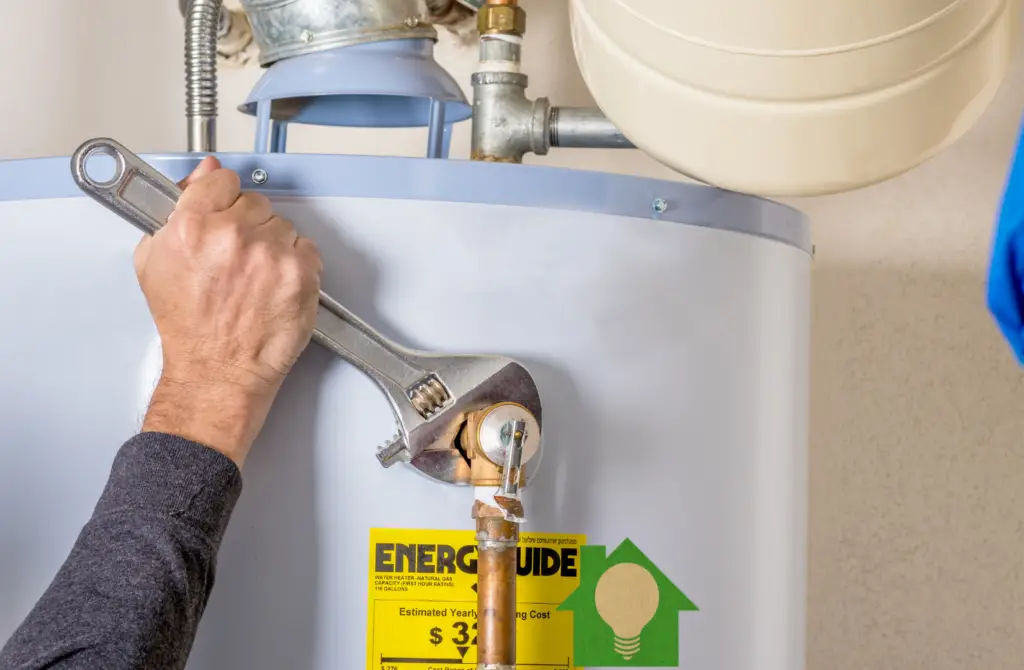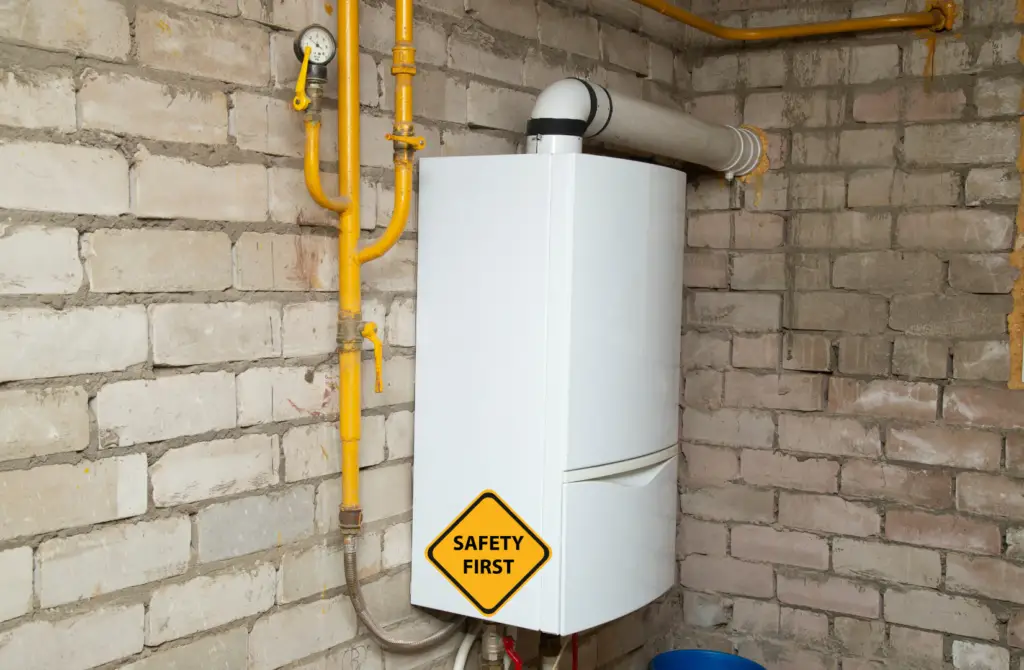Biomass heating has emerged as a sustainable alternative to traditional heating systems, but how does it stack up against other options such as oil, gas, and electric heating.
| Biomass Heating | Underfloor Heating | Gas Heaters | Oil Heating Systems | |
| Cost(£) | 5,000-20,000 | 50 per sq. meter | 5,000-10,000 | 2,700 -7,000 |
| Lifespan | 20-30years | 25years | 15-20years | 15-20years |
| Efficiency | 80-90% | >90% | 55-97% | 80% |
| Type of Fuel Used | Biomass | Electricity | Gas | Oil |
Other common heating systems include the underfloor heating system, gas central heating system, oil heating system, liquefied petroleum gas, and heat pump system. This article will make a comparison of biomass with each.

Biomass vs. Underfloor Heating
Efficiency
Comparing the efficiency of a biomass heating system and an underfloor heating system depends on several factors, including the type of biomass system, the insulation of the building, and the underfloor heating system.
Generally, a well-insulated building with a high-efficiency biomass heating system can be highly efficient. The efficiency of a biomass heating system depends on the fuel type and the efficiency of the stove or furnace.
Underfloor heating systems can also be efficient, but this depends on the type of system and how well the floor is insulated.

However, comparing the two heating systems for a new build, underfloor heating systems are often more efficient than biomass heating systems, especially when combined with high insulation levels.
The heat is distributed evenly and rises from the floor, reducing the heat lost through walls and ceilings.
The efficiency of both systems can also be affected by the building’s overall design, so it’s best to consult with a heating specialist to determine the best option for your needs.
Cost
Biomass heating systems can be more cost-effective than underfloor heating systems if the fuel is locally sourced and can be procured at a low cost. However, the price can increase if the fuel must be transported over long distances.
The initial cost of installing a biomass heating system can also be higher than underfloor heating, but the long-term cost may be lower due to lower fuel and maintenance costs.
On the other hand, underfloor heating systems are more expensive to install, especially if the building requires extensive floor work.
The installation cost can also depend on the type of underfloor heating system, with electric systems typically being less expensive to install than water-based systems.
The long-term costs of underfloor heating systems can be lower, as they are often more efficient and have lower maintenance costs than biomass heating systems.
Safety
On the grounds of safety, both systems have their highs and lows. For Biomass, there’s a considerable risk of fire incidents if the fuel used is not stored correctly. This can pose a massive environmental threat and even cause ecological damage.
Underfloor heating also poses risks of electrocution. This happens when the electrical systems are not correctly installed and maintained.

Maintenance
Biomass heating systems require a regular cleaning and maintenance routine. This includes the removal of ash and constant check on the fuel in case replenishment is needed.
The underfloor heating system does not require much maintenance as Biomass. What is needed is just an occasional flush or cleaning of pipes used to prevent clogging.
Life Span
The lifespan of a biomass heating system depends on the fuel type and maintenance practices. Well-maintained and engineered biomass systems are made to last for about 20 to 30 years.
How long an underfloor heating system can last depends on the material of the pipes. But on a general note, well-maintained underfloor heating systems can stay for about 25 years.

Biomass vs. Gas Central Heating System
Efficiency and Cost
Biomass heating systems, which use wood chips or pellets as fuel, have an average efficiency of around 80%.
However, the efficiency of any biomass system depends on factors such as fuel quality and the system’s design. Biomass heating systems are more expensive to install and maintain than gas central heating systems.
Gas central heating systems, which use natural gas or propane as fuel, have an average efficiency of around 90%. Gas boilers are generally cheaper to install and maintain than biomass boilers.
However, natural gas and propane costs can fluctuate, making it more difficult to budget for heating expenses.
Safety
Biomass and gas central heating systems can provide safe and efficient heating options, but there are some key differences to consider.
Biomass heating systems can generate carbon monoxide and particulate emissions, which are dangerous if not correctly installed and maintained. Furthermore, they also pose a fire risk if fuel is stored inappropriately or if any equipment malfunctions.
Gas central heating has the potential to leak carbon monoxide into the environment if not correctly installed and maintained. Because of its gaseous nature, it has a higher potential for explosions if gas leaks and ignites.
Maintenance
For biomass systems, there is a higher maintenance level than gas central heating. This is because it requires regular cleaning of the fuel storage and feeding system, ash removal, and the boilers need annual maintenance checks.
Biomass boilers are more complex than gas boilers and require trained technicians.
Furthermore, the fuel used may also need to be sourced and transported, leading to additional maintenance costs.
Gas central heating requires lower maintenance than biomass heating systems, as it only requires annual boiler service and occasional replacement of filters.
Gas boilers are less complex and easier to repair, leading to lower maintenance costs.
Life Span
| Biomass Heating System | Gas Central Heating System |
| It lasts for about 20 to 30 years | It lasts for about 15 to 20 years |
Biomass Heating System vs. Oil Heating System
Efficiency and Cost
| Biomass Heating System | Oil Heating System |
| Has 80 – 90% efficiency | It has 80% efficiency |
| High cost of initial installation {from £5,000 – £20,000} | Low cost of initial installation {from £2,700 – £7,000} |
Safety

Biomass heating system:
- Generally considered safe with proper maintenance and use.
- It can pose a fire risk if fuel is stored improperly.
- Requires adequate ventilation to prevent the buildup of harmful emissions.
Oil Heating System:
- It can pose a fire and environmental hazard if not stored properly
- It can also pose a risk of oil leaks, harming the environment and indoor air quality.
Maintenance
| Biomass Heating System | Oil Heating System |
| Requires regular cleaning and maintenance of the equipment. | Requires regular maintenance of the heating equipment. |
| The fuel storage area should be kept clean and dry. | The oil storage tank should be inspected regularly for leaks. |
| Fuel should be stored properly to prevent contamination or fire hazards. | Fuel filters should be replaced periodically to maintain efficiency. |
Life Span
Biomass Heating System:
- Lasts 20-30 years with proper maintenance
- Life span may be reduced due to factors such as improper fuel storage or periodic cleaning of the system.
Oil Heating System:
- It lasts around 15-20 years
- It can have a longer lifespan with regular maintenance but may be shorter if not properly maintained.
Biomass vs. Liquefied Petroleum Gas [LPG]
Efficiency and Cost
| Biomass Heating System | LPG |
| High efficiency around 80-90% | High efficiency around 85-90% |
| Initial installation costs can be high, but the fuel price is lower than LPG. | Initial installation costs can be lower than biomass, but the fuel cost is higher. |
Safety
Biomass Heating System:
- Generally considered safe with proper maintenance and use.
- It can pose a fire risk if fuel is stored improperly.
- Requires adequate ventilation to prevent the buildup of harmful emissions.
LPG:
- It can cause a fire hazard if not handled properly.
- There’s a high risk of gas leaks, which can harm the environment and indoor air quality.
- Requires proper ventilation to prevent the emission of dangerous gasses.
Maintenance
Biomass
- Requires regular cleaning and ash removal, periodic inspection, and maintenance of burn chamber and fuel supply system. Also, replacing parts (e.g., grates, convection fans) as needed is essential.
LPG
- Requires regular checking of fuel levels, occasional cleaning of burners, and replacement of parts (e.g., O-rings, regulators) as needed.
Life Span
| Biomass Heating System | LPG |
| High lifespan of 20-30 years with proper maintenance | Low lifespan of 15 years for storage tanks |
| Dependent on the quality of the fuel used | Maintenance required for safety and efficiency |
Biomass vs. Heat Pump
Efficiency and Cost
| Biomass Heating System | Heat Pumps |
| High efficiency of 80-90% | High efficiency, typically 300-400% |
| Higher initial cost but lower operating costs | Lower initial cost but higher operating costs |
| Fuel cost varies based on the availability and price of biomass fuel | Operating costs mainly dependent on electricity prices |
Safety
Biomass heating and heat pump systems can be safe, but there are some differences between the two in terms of safety.
Biomass heating systems:
- It can pose a fire hazard if the fuel is not stored properly
- Produce emissions, including carbon monoxide, which can be dangerous if the system is not properly ventilated
Heat pump systems:
- Require electrical power to operate, which can pose a safety risk if there is a malfunction or failure
- Can pose a risk of refrigerant leaks, which can be harmful if not addressed
Both systems need to be installed and maintained properly to ensure safety.
Maintenance
| Biomass Heating System | Heat Pump |
| Require regular cleaning and maintenance of the fuel storage and handling equipment. | They have fewer moving parts and generally require less maintenance |
| Need regular servicing to keep the combustion and ventilation systems in good working order | They may need to have their refrigerant levels checked and topped up |
| Burn fuel that can create ash, which needs to be disposed of properly | Require regular cleaning of the air filters and coils to ensure optimal performance |
Life Span
Biomass heating systems:
- Have a lifespan of around 20-30 years.
- The lifespan of the equipment can be extended with proper maintenance and repairs.
Heat Pump:
- Have a lifespan of around 20-25 years.
- It can last even longer with regular maintenance and proper usage.

Conclusion
Biomass systems offers certain benefits that may not be present in other systems. This is not to say that Biomass systems offer the All-in-one solution for heating home. While Biomass systems like other heating systems have their flaws, it is best you make proper research on a particular heating system before you install them in your homes.
